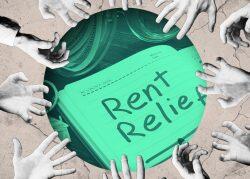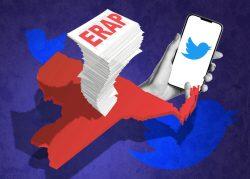Landlords were desperate for action on New York’s Emergency Rental Assistance Program, which exempts tenants from eviction despite running out of cash, and last week they got it.
Under a settlement, on Jan. 15, ERAP will no longer accept applications, meaning no more instant eviction shield for tenants who apply.
But troubling questions remain for landlords and the tens of thousands of applicants who have yet to hear if they qualify for aid.
How long will eviction protections last? What if owners qualify for aid but the program remains insolvent? The Real Deal went searching for answers.
One certainty
Among the many what-ifs, one thing seems certain: Eviction protection won’t last forever.
Once the Office of Temporary and Disability Assistance runs out of ERAP money and does not expect any more from Washington, it will start denying applications, said Edward Josephson, an attorney with the Legal Aid Society, which represented tenants in the settlement.
“And at that point, the eviction stays for those tenants will end,” Josephson said.
Unknown, however, is when the state agency will decide the well has truly run dry.
The program has been low on cash since November 2021, when Gov. Kathy Hochul first moved to close it because nearly all of the feds’ $2.4 billion had been exhausted. But the state asked for additional funding — most recently requesting $1 billion in November.
The U.S. Treasury still has rent aid to give states. Of the more than $46 billion in rent relief Congress made available, $13 billion had yet to be allocated as of Dec. 19, according to the National Low Income Housing Coalition.
How much will New York get? Not much, history suggests. When Hochul put in for $1.6 billion at the beginning of the year, the Treasury sent $119 million, a mere 7 percent of her request. The next batch, in October, was just $99.4 million.
Read more



It’s also unknown how many more times the Treasury will disperse funds unused by other states. A spokesperson for the department did not respond to a request for comment.
The state could also add more money to the program. But after including an $800 million infusion in her election-year budget, the governor, who won a four-year term in November, has been mum on the subject.
That leaves landlords who have applied but received neither money nor a denial in a sort of purgatory.
“Phantom applications”
The state has disbursed nearly all its rent aid. OTDA received $334 million after the initial $2.4 billion, and spent $2.7 billion as of Dec. 14. If anything’s left, it’s pennies.
Meanwhile, 176,000 unpaid applications are pending. Each one likely represents rent a landlord could not collect from a tenant shielded from housing court.
An even greater number of tenants whose applications were deemed incomplete are being protected from eviction by the courts.
“What about all those ‘unsubmitted’ applications, the ones started but never completed?” asked landlord Ann Korchak, a spokesperson for the Small Property Owners of New York. “Will OTDA expunge them from the portal? They can’t allow these phantom applications to continue getting eviction protections.”
A Freedom of Information Law request by June Margolin, a Long Island landlord who surveyed owners on their ERAP experience, found that OTDA’s reported application tally — 391,000 at last count — did not include over 360,000 unfinished as of Sept. 29.
Landlords say once an application is started, even if the tenant fails to submit it, its status is marked as “pending,” which the court views as eligible for eviction protection.
Owners claim OTDA is not actively reviewing those applications or alerting owners when information is missing.
Margolin said she only found out her tenant’s application was in that holding pattern after asking her Assembly member for help.
“Never once did OTDA tell me and most other landlords that there was a black hole,” Margolin said. Landlords can fill in a tenant’s missing information.
OTDA confirmed that incomplete applications are not being reviewed, but claimed that incomplete applications are ineligible for eviction protection. However, Margolin learned from Suffolk County Court that housing court judges are not told to check applications’ validity.
“They are purely dependent upon the information provided by the tenants and the landlord attorneys,” she said.
A spokesperson for the Office of Court Administration did not specify whether judges distinguish between filed and unsubmitted applications when granting eviction protection. OTDA periodically shares data with the court and evictions are stopped when a tenants’ application is pending, the spokesperson said.
Elephant in the room
Owners awaiting decisions on aid still don’t know how rent arrears will be paid if the state program remains bankrupt.
Industry experts floated a few ideas.
Jay Martin, executive director of the landlord group Community Housing Improvement Program, said the city could amp up its One Shot Deal program, which renters facing eviction can tap to cover rent.
A year ago, the City Council passed a bill to expand access to one-shots. Instead of muddling through the courts to seek relief — a process that wasted tenants and landlords’ time and money — renters can now apply before a housing court date.
But the program relies on just $150 million in annual funding. The state requested $1 billion just to satisfy existing applications.
Martin suggested the state fund the city program, noting that if rent revenue falls, so does the city’s property tax revenue.
“For the city and state, we would argue this is a good investment,” Martin said.
If one-shots can’t cover the arrears, Korchak said landlords will likely sue.
“I imagine there will be lawsuits against the state for this unpaid rent,” Korchak said. “They closed the courts, made our lease contracts meaningless, and created an underfunded, poorly designed portal.”
Landlords on Twitter have frequently called for litigation.
“Can small housing providers sue the politicians that stole our property & livelihoods?” asked one user in June. “Unconstitutional & illegal.”
